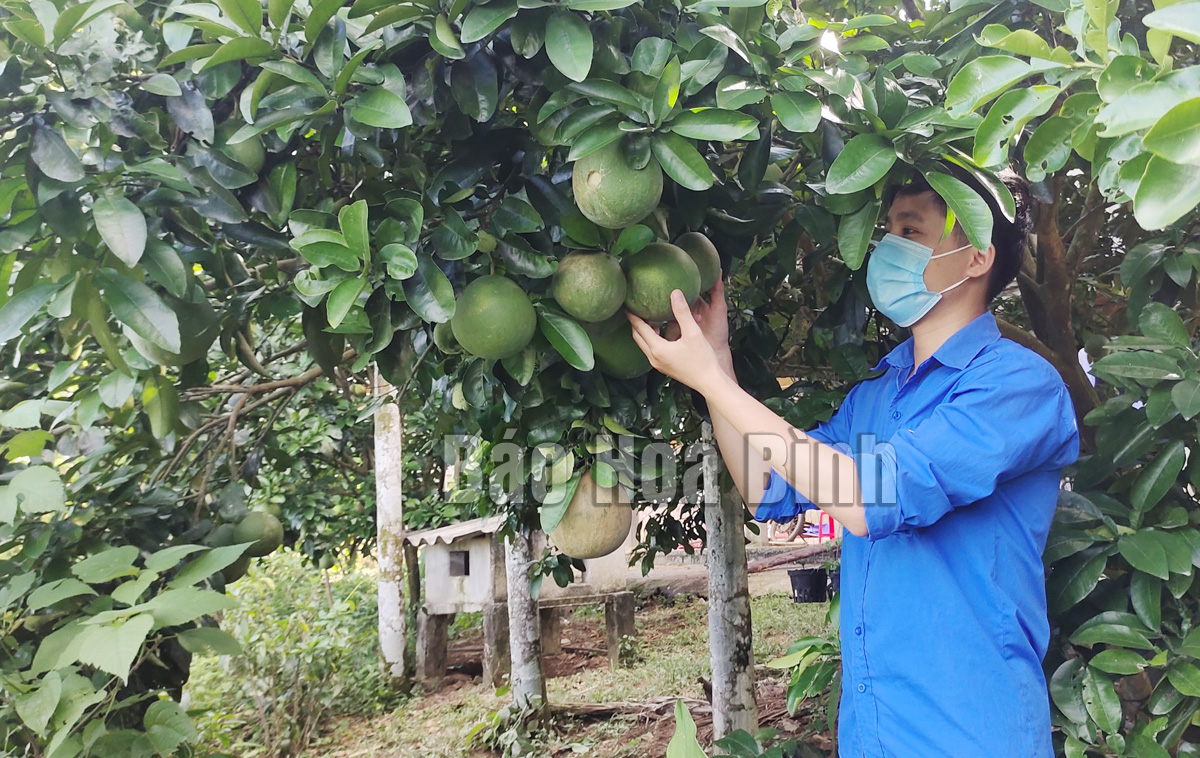
(HBO) – The Youth Union of Tan Lac district has organised practical activities to support local youths in developing and expanding business activities, contributing to promoting startups models in the locality.

Youth union members of Gia Mo commune in Tan Lac
district have been supported in accessing preferential loans to develop grapefruit
growing models.
In May, a young farm club comprising 10 members
was launched in Phu Vinh commune, which offers more opportunities for local
youths to collect knowledge and access capital sources and support channels to realise
their startups.
The club has also created a healthy environment, and enhanced connection and
mutual support between local young people.
In order further expand the startups movement among the local youth union’s
members and young people, the district’s Youth Union has promoted the
dissemination of guidelines and policies of the Party and State, the support of
sectors for young startups.
Attention has been paid to updating potential and strengths in economic
development to help young people determine directions for starting their
business.
The district has nearly 1,800 young people from nearly 160 youth union establishments.
Since 2020, the district’s Youth Union has enhanced training activities to equip
local youths with knowledge on economic development, and information related to
the One
Commune, One Product (OCOP) programme.
Career and enrollment counseling activities, and job introduction have been also
carried out in local schools.
Tan Lac district has witnessed the increasing number of typical economic
development models with stable income run by youth union members, such as a grapefruit cultivation model of Mr. Dinh Van Tai in Don hamlet, My Hoa
commune; a seedling nursery model of Mr. Bui Van Tuong in Sung 2 hamlet, Thanh
Hoi commune; and a red-flesh grapefruit cultivation model of Ms. Bui Minh Anh in Bui Doi hamlet, Nhan My
commune.
In the coming time, the district’s Youth Union will continue to implement practical
activities and take measures to remove difficulties facing local young people in
accessing capital for production and science and technology, and seeking markets
for their products, towards creating the most favourable conditions for young
people to implement their ideas.
According to data from the Hoa Binh Provincial Party Committee, the industrial production index for the first six months of 2025 is estimated to have increased by 20% compared to the same period last year. This marks the highest year-on-year growth rate for this period since 2020.
In the first six months of 2025, Hoa Binh province’s export turnover was estimated at 1.145 billion USD, marking an 18.11% increase compared to the same period in 2024. Import turnover was estimated at $ 804 million, a 17.15% increase, which helped the province maintain a positive trade balance.
The lives of the ethnic minority farmers in Tan Lac district have gradually improved thanks to the new directions in agricultural production. This is a testament to the collective strength fostered through the professional associations and groups implemented by various levels of the district’s Farmers’ Union.
With the motto the "product quality comes first,” after nearly one year of establishment and operation, Muong village’s Clean Food Agricultural and Commercial Cooperative, located in Cau Hamlet, Hung Son Commune (Kim Boi district), has launched reputable, high-quality agricultural products to the market that are well-received by consumers. The products such as Muong village’s pork sausage, salt-cured chicken, and salt-cured pork hocks have gradually carved out a place in the market and they are on the path to obtaining the OCOP certification.
In the past, the phrase "bumper harvest, rock-bottom prices" was a familiar refrain for Vietnamese farmers engaged in fragmented, small-scale agriculture. But today, a new spirit is emerging across rural areas of Hoa Binh province - one of collaboration, organisation, and collective economic models that provide a stable foundation for production.
Maintaining growing area codes and packing facility codes in accordance with regulations is a mandatory requirement for agricultural products to be eligible for export. Recently, the Department of Agriculture and Environment of Hoa Binh province has intensified technical supervision of designated farming areas and packing facilities to safeguard the "green passport" that enables its products to access international markets.



